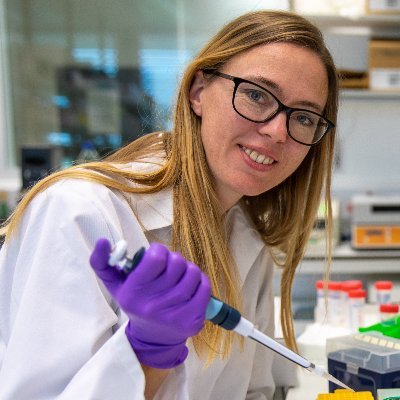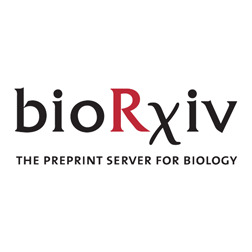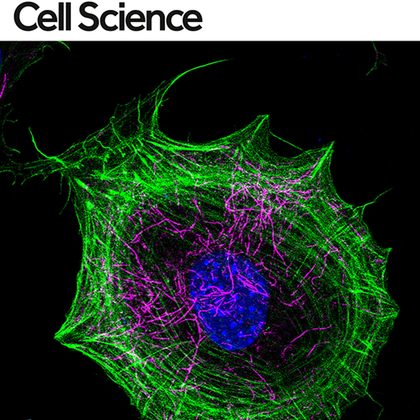
Madeline Lancaster
@mad_lancaster
Followers
11K
Following
824
Media
157
Statuses
1K
Developmental neurobiologist using cerebral #organoids to study brain size and evolution. Opinions my own.
Cambridge, England
Joined February 2015
We've started a new Google group dedicated to Brain organoids. Check it out and join us! We want to create an open community to discuss methods, technical difficulties, and uses of organoids:
25
78
272
Super cool new work from the McDole lab on the extreme stress primordial germ cells have to endure on their journey to the gonads during embryonic development. It’s wild that a new generation is even possible after all that! https://t.co/D71QsMR20S
0
3
25
In case you missed it, check out our recent preprint on developmental timing and how slower means bigger, axons that is! Led by the extraordinary @feline_lindhout
https://t.co/LjOlbr9kQ7
biorxiv.org
The considerably slow pace of human brain development correlates with an evolutionary increase in brain size, cell numbers, and expansion of neuronal structures, with axon tracts undergoing an even...
1
17
73
Very cool preprint by my colleague Kate McDole and her postdoc Katie Goodwin @CellBiol_MRCLMB using beautiful imaging and quantitative methods to understand the wondrous migrations of primordial germ cells in mouse embryos https://t.co/Ck9ORISLYk
2
4
20
This is a fun read, especially with the cool scrolling animations 🤩
What's so special about the human brain? 🧠 Learn the answers to this age old question: https://t.co/hmQYkWGnPE
1
9
40
If you didn't yet have enough good reasons to share your bioimage data, Matthew (@BioimageA), Josh (@notjustmoore), Erin (@tuesdaystitches), Assaf (@AssafZaritsky) and I are here with squirrel drawings to convince you that you should do it: https://t.co/CEAjC8qFwo
journals.biologists.com
Summary: A proposal for actions needed to consolidate the development of an inclusive and open culture of data sharing in bioimaging and a highlight of the promising outlook of multidisciplinary...
1
30
51
On average, chimp cortical neurons contained 221 spines, while in human it's 980. So, 980 x 16 billion = 15.68 trillion synapses in human cortex, while 221 x 8 billion = 1.768 trillion in chimpanzee. A difference of almost 14 trillion, more than all the galaxies in the universe!
0
5
10
Dendritic spines are a neuroanatomical site of synapses, so counting their number can provide an indication of synapse number. Bianchi et al. (Cerebral Cortex 2013) painstakingly counted dendritic spine number on cortical neurons in 4 cortical regions in human and chimpanzee.
1
1
5
The human cortex contains roughly 2 times more neurons compared with chimpanzee. This means there are about 16 billion cortical neurons in human and 8 billion in chimpanzee.
1
2
5
One point I make in the article is the increase in neurons and their connections in humans compared with apes, with a mind-boggling difference in cortical synapse number of 14 trillion. Yes, you read that right. You might think my math is wrong, well here's how I calculated it:
1
1
5
I really enjoyed writing this Perspective for the special issue on Neuroscience. It's an exciting time to study the human brain! Unraveling mechanisms of human brain evolution: Cell
cell.com
This perspective discusses the challenge of understanding what sets the human brain apart and proposes how the wealth of modern tools may allow for going from correlation to causation to understand...
6
75
321
What an honour it was to visit UHasselt Biomed and receive an honorary doctorate. It’s a vibrant and growing community of biomedical scientists doing exciting work in immunology, cardiometabolic, and neuroscience!
25-jarig bestaan @BIOMED_UHasselt: onderzoeksinstituut reikt eredoctoraat uit aan Madeline Lancaster, pionier binnen de biomedische wetenschappen. https://t.co/VuTKsXb5H7
@Cambridge_Uni @mad_lancaster
3
0
33
Faculty Position in Developmental, Cell or Stem Cell Biology, King's College London https://t.co/J350mxXXNb via @the_Node
thenode.biologists.com
Are you ready to be a group leader? Are you a multi-disciplinary biologist with interests in developmental cell biology? Join a robust, collaborative and
0
35
34
On the latest #NBTForum podcast, Barbara Cheifet speaks with Madeline Lancaster and Sergiu Pasca about neural organoids — how they are being used to study both basic biology of the brain and their future impacts on disease research
0
3
6
Check out this fantastic opportunity in the McDole lab here at the LMB. Right at the interface of imaging and development!
1
30
87
Sergiu and I had a nice chat with Barbara about all things neural organoids. Check it out in the podcast link 👇
Had a great conversation with Madeline @mad_lancaster about human multi-cellular models of disease, evolution and development for the @NatureBiotech Forum Podcast moderated by Barbara @BCheifet
0
7
90
Present your insights on how #organoids are transforming #DiseaseResearch! Demonstrate the power of organoids, and how they transcend many specialisms across science. ⏰Submit an abstract to #Organoids24 by 2 July to be considered for a presentation. 📎 https://t.co/3Jpp4F7gsk
0
4
14
We have #bursary support available to attend our #Organoids24 research meeting! Don’t let financial barriers prevent you from accessing a global platform for discussion & networking on the topic of #organoid models. Apply by 18 June ⏰ 📎Find out more: https://t.co/3Jpp4F7gsk
0
4
10
Some amazing northern lights over Cambridge on a beautiful warm clear night!
0
0
90
Check out this upcoming organoids conference packed full of great speakers pushing the limits of organoid technologies!
Join leading disease researchers at #Organoids24 to explore advances in the application of #OrganoidModels! Discover the latest on #organoid functionality, and developments in large-scale approaches and modelling systems 📎More info: https://t.co/3Jpp4F7gsk 💸Bursaries available
1
16
72












